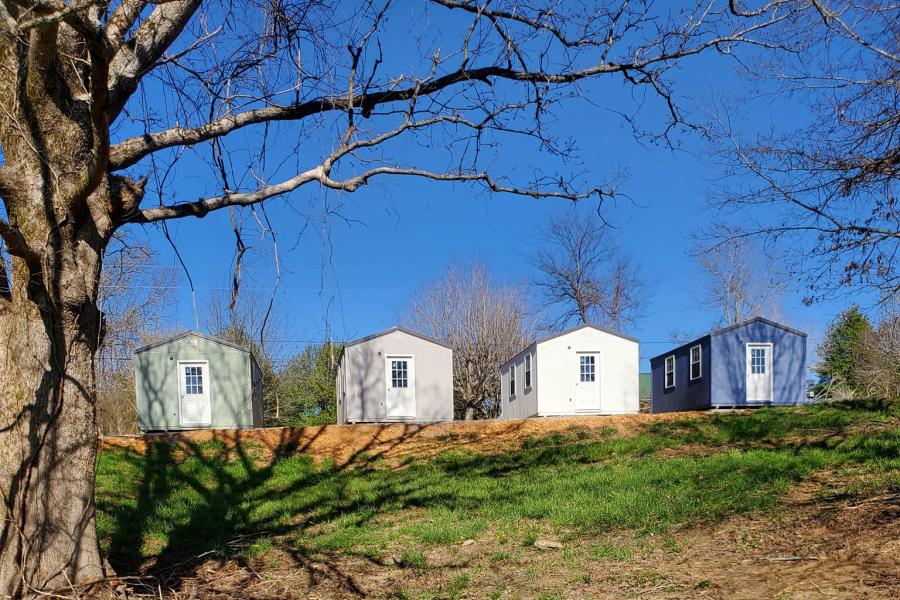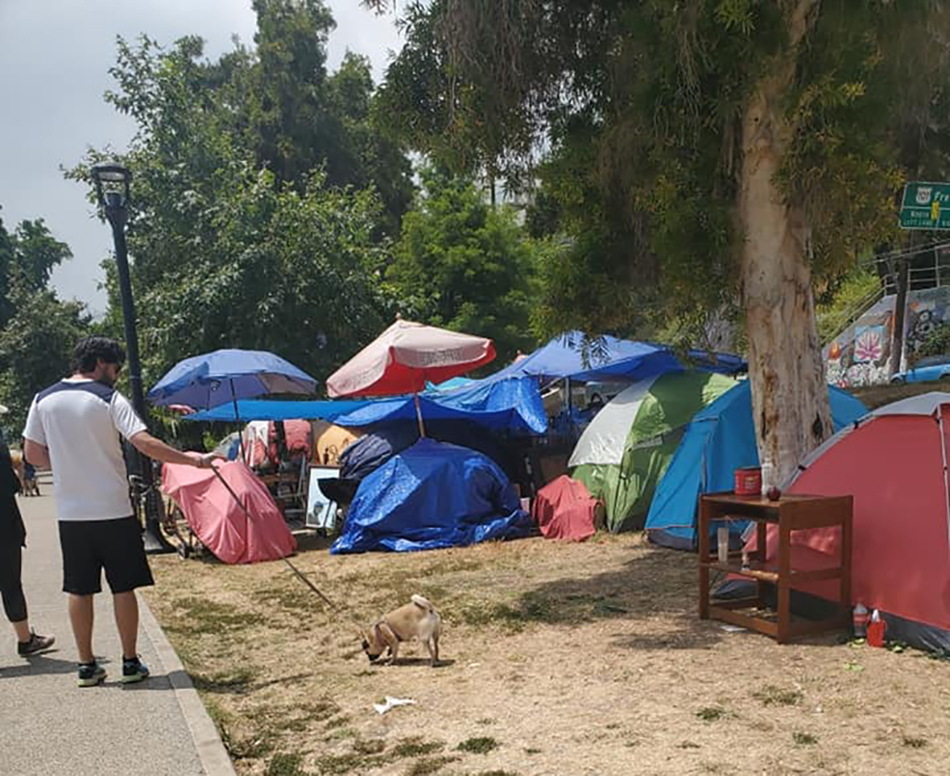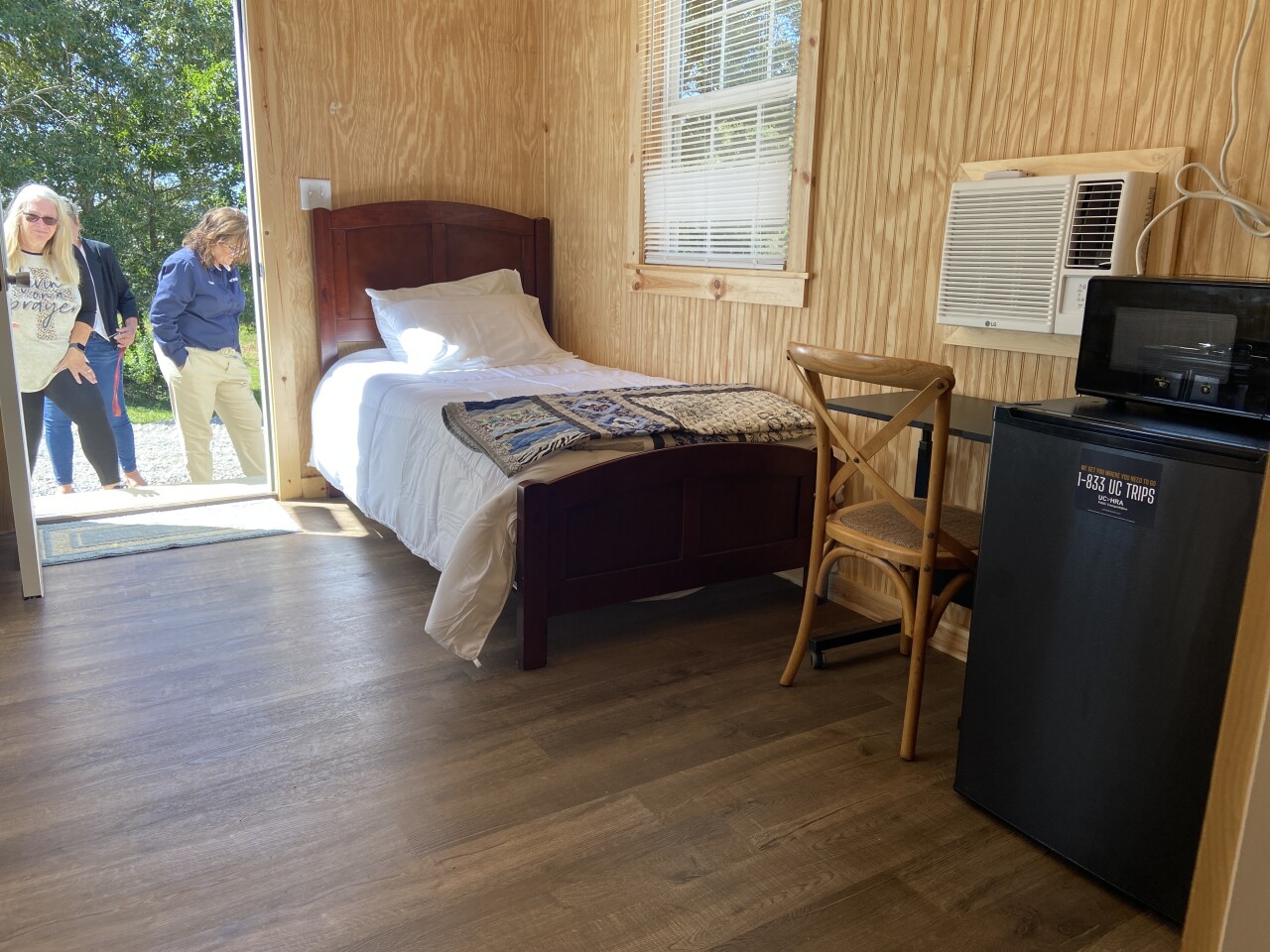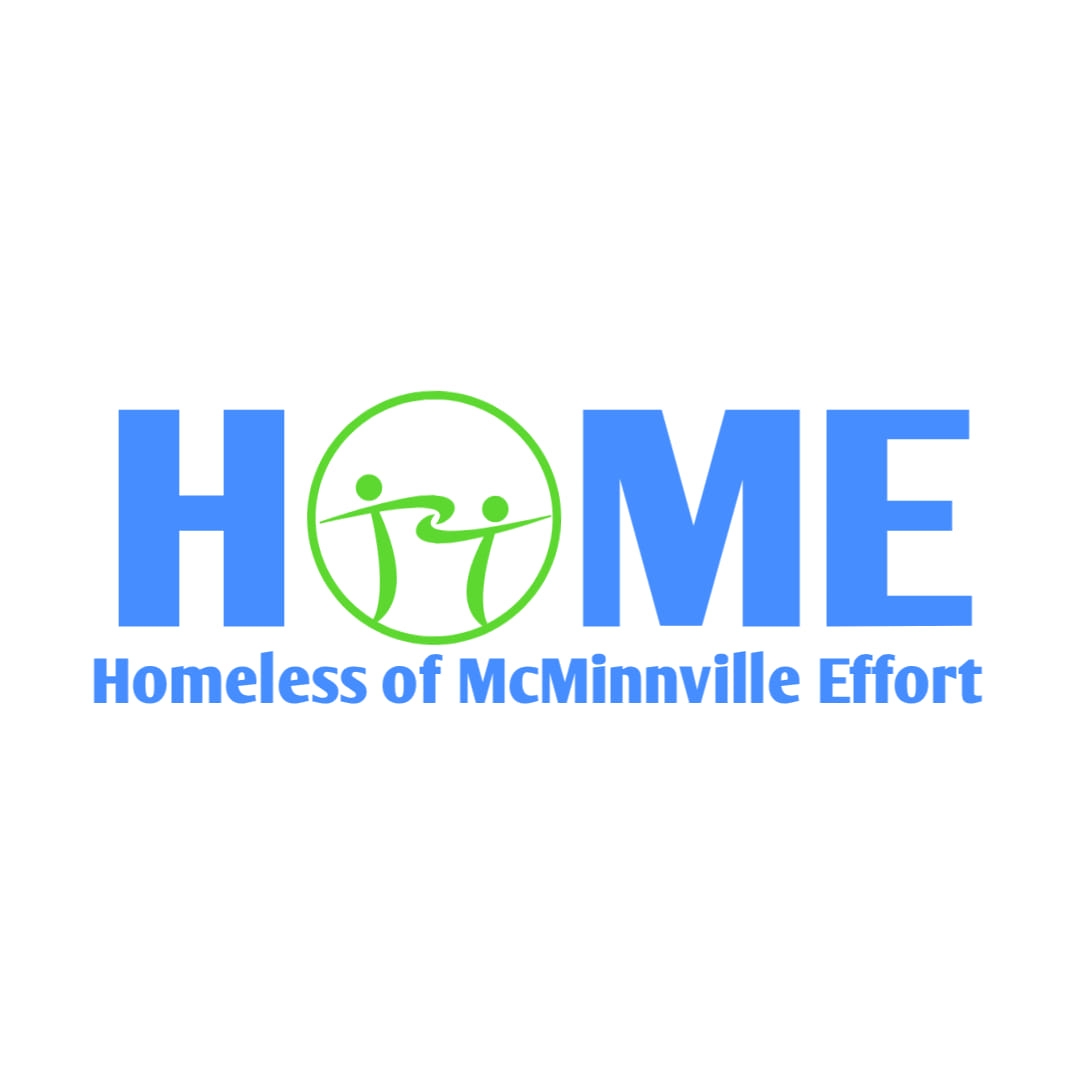McMinnville HOME brings together public, private partners for community-based approach to homelessness

By KATE COIL
TML Communications Specialist
City and police officials, civic organization, churches, and other volunteers in McMinnville have come together to find workable solutions to homelessness issues in their community, including a transitional tiny home community and connecting citizens to employment and mental health services.

The Homeless of McMinnville Effort (HOME) program began as a personal ministry of McMinnville Police Lt. Bill Davis and his wife when Davis was off the clock. The couple offered food at least once a week to the community. Around that time, McMinnville PD also started its CIT program.
The head of the crisis-intervention team for McMinnville PD, Davis began to notice that many of the homeless individuals he and his wife worked to feed each Thursday were going through the same crisis situations he had been trained to handle with CIT.
Davis began connecting with other members of the McMinnville community who wanted to help. His wife was working with Adam Rush, a local pastor, who was interested in providing shower services to members of the homeless population once a week.
“My son had been on the Appalachian Trail,” Davis said. “He was talking about how he would feel degraded when he went into town because he’d been out on the trail a week or a week and a half and hadn’t showered. After making it to a town, he’d be starving to death. He’d walk into a restaurant with a pocket full of money and would be told to leave because he smelled bad or that they didn’t want him in there. Many of the folks we deal with haven’t showered in longer than that.”
Tina Higgins and Sheila Fann became part of the group after Higgins witnessed a CIT call at a local business. Together, Davis, his wife, Rush, Higgins, and Fann founded HOME to start providing services to the homelessness community. The program grew from twice a week feedings and showers toward a goal of long-term solutions toward the issues many homeless individuals face, including housing, unemployment, and a need for mental health care.
As more people became involved and more resources were cultivated, the program began offering more services. Local civic organizations, places of business, the Upper Cumberland Development District, local mental and health care organizations, and even members of the McMinnville Board of Mayor and Aldermen began working with the program or making donations to help the effort.
“We never anticipated this kind of turn out,” Davis said. “The whole community has just come out. We are also starting a women’s shelter. We’ve been accused of giving handouts, but I say I’m one of the hardest fellows around. I want to help people, but I’m not an enabler.”
McMinnville Police Chief Nichole Mosley also supported Davis’ involvement in the effort, both as part of the department’s CIT department and as community outreach. Unfortunately, Davis said many members of the homeless community are themselves victims of crimes like abuse, attacks, and theft but feel they can’t report crimes against them. Davis said it is important for MPD to be involved in this program because officers are on the frontline of the issue.
“Officers have been helping homeless folks and those who have been displaced since I began this 32 years ago,” Davis said. “We put people up in hotels, we raise money, and we feed them pizzas. It’s not something that we advertise or put on the news up until recently. We are the ones who see these folks, and there is not much more crisis a person will ever have than wondering where they will lay down, where they are getting their next meal, and whether they will be able to get a full night’s sleep without being harassed by somebody. Officers are on the frontline and when you tell someone they have to go, it’s awesome to have an option for them. HOME is here to help when it’s the middle of the night, it’s freezing cold, and you need a place to go.”

Through his CIT connections, Davis has been able to connect many members of the homeless community who are struggling with mental health issues to local resources they didn’t even know existed.
“About a year into this, we started a CIT task force with the department, the sheriff’s office, the DA’s office, and the various mental health facilities,” Davis said. “We started getting those resources together and found out if HOME can put them up in a hotel for three to five days there is money for them to get assistance if they have mental health issues. They can help them get a job, and there are peer support groups they have. A lot of these individuals have mental issues and have families who are exhausted from taking care of them. These people have fallen through the cracks or don’t have insurance. They then end up homeless. Another myth is that if you lock people up the justice system will get them mental health care. That causes major problems because they not only have mental health issues, they’re homeless, and now they’ve got court fines and feeds.”
Davis said many of those individuals he has worked with don’t want to be homeless, but lack the resources and support they need.
“Our vision was to see those who want to work and want to get better to have that chance,” he said. “It costs a lot to get an apartment or to get started. The cost is so much, and it’s even higher since COVID. You really need first month, last month, and security deposit to get an apartment, and that can come to $3,000. You can’t get that if you’re homeless, even if you’re working.”
Work with the HOME program has also given Davis the data he needs to dispel many misconceptions about homelessness in his community and smaller communities at large.
“We keep data because I knew it might come up in city council,” he said. “About 87% of the people we serve are Warren County natives or have lived here most of their lives. Since the inception in 2020, we have served more than 700 people. Most of the homeless population in a rural community don’t want to be seen or live in a vehicle. You can have a vehicle and be homeless. We have a lot of especially women and children who live in a vehicle and go unnoticed. We had a young lady with two children in middle school. She has her work schedule around their school schedule, but up until we opened our women’s shelter, she had spent a year homeless. There are also a lot of people who are couch jumpers and just going from one place to another.”
While many members of McMinnville’s homeless population would like to hold down jobs, stigma and prejudices often keep them from the employment they need to start changing their lives.
“If you don’t have an address and don’t have a phone, it pretty much stops when you’re trying to get a job,” Davis said. “I have gone to businesses and explained to them that I have people who are homeless and want to work. Some have drug issues, some don’t; some have been to jail, some have not; and some have mental health issues, and some don’t. With that, most of them don’t have an address. I tell them if you can get ahold of me, I can get ahold of them and set up an interview.”
A lack of transportation is another obstacle to holding down a job with many unwilling to hire those who don’t have a vehicle. Davis said HOME provides a van service that helps those with employment get to and from work on time so this is no longer and obstacle.
Davis said the organization contacted a young man who was living in a swampy area behind the city’s Walmart. The young man had no roof over his head and no personal vehicle, but was hitching a ride with a local bus to his job every day where he hadn’t been late or missed a day of work in eight months. However, the young man’s family had control of his bank account and debit card. HOME was able to help the young man gain back control of his own finances and find transitional housing.

The group gave out tents, blankets, hand warmers, and provided shelters in cold and extreme weather. However, HOME soon found that putting up the homeless population in hotels as well as providing temporary shelters like tents was not cost effective. The decision came to switch to a model where hotel stays are provided to families while a more workable solution could be found for single men and women wanting to work their way out of homelessness.
This led to the creation of the Prosperity Point tiny home community, a transitional housing community that allows those who have lived in Warren County and are employed for at least a year to live in a tiny home rent-free for six months while they save up the money they need to get into an apartment.
“I found a piece of property that I thought belonged to the city, but wasn’t sure,” Davis said. “I talked to City Administrator Nolan Ming and told him if the city owned the property that I wanted it and what I wanted it for. With no hesitation, he looked up and saw that it belonged to the city. He said he was behind me 100%. We took it to the board, and it received a unanimous vote.”
Once again, the churches, businesses, and civic organizations of McMinnville began donating their funds, supplies, and time to construct the homes. Each house costs between $10,000 and $12,000 based on the first prototype house that meets basic state requirements. The 6.25-acre property now belongs to HOME and will have eight tiny homes completed by the end of January.
In the eight months since Prosperity Point has opened, there have been three individuals who graduated from the program and two who are nearing completion of the program. Davis said it is easy for homeless individuals to feel forgotten or abandoned by society at large. HOME works to give them hope
“If you can’t see the future, you can’t see the light at the end of the tunnel,” he said. “Providing a home for no cost so long as they abide by our rules allows them to see that light. A lot of the homeless people we talked to were on the verge of suicide. We had one gentleman who had lived in the woods for nearly 10 years, unseen and just forgotten. Several years ago, he had an injury, couldn’t work, filed for disability and was turned down. He then went through a serious depression. We were able to get him into a mental health program that aided him in getting his disability. He now is off the street and is working to get his ministerial license. He works at the group home we sent him to. He’s now the one leading people. People have to see the light.”
